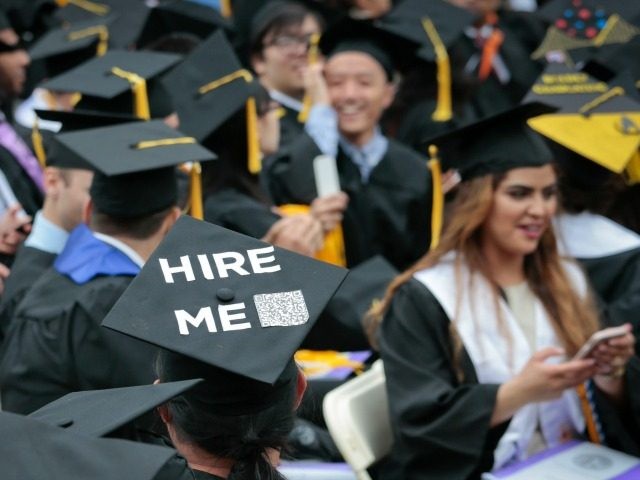Silicon Valley is crowding out American minorities from the tech industry with the H-1B visa, a U.S. workers advocate says.
Tom Broadwater of Americans4Work is taking issue with tech giants’ widespread use of the H-1B visa, where more than 100,000 are imported to the U.S. every year to fill American jobs.
In a new op-ed, Broadwater explains how American minorities, specifically African-Americans, are crowded out of Silicon Valley as a growing number of Indian and Chinese nationals take valuable jobs:
The tech sector has become the heaviest user of the H-1B program. In total, H-1B holders account for 13 percent of tech workers currently employed in the United States. Silicon Valley giants have aggressively lobbied for increases in the annual allotment of H-1B visas. Google’s parent company, Alphabet, shelled out almost $17 million lobbying partly on immigration issues just last year. Microsoft spent nearly $9 million.
They’ve gotten their way. Today, over 900,000 foreigners work in the United States on H-1B visas.
Here’s the problem: Tech companies don’t need more foreign workers to fill skilled roles. There’s an ample supply of qualified, willing Americans they could hire. Recent studies by the National Bureau of Economic Research, RAND Corporation, and Urban Institute all found that colleges and universities are producing science and engineering graduates faster than businesses are creating science and engineering jobs.
Broadwater says that not only are Americans seeing their chances to enter the tech industry plummet because of the H-1B visa, but wages are declining or remain stagnant:
This job market oversaturation suppresses wages. Between 2001 and 2011, annual wage increases for computer programmers didn’t even keep pace with inflation. In March, economists at the University of Michigan and the University of California, San Diego concluded that the average American computer scientist’s salary would have been 5 percent higher in 2001 if the H-1B visa program hadn’t existed during the 1990s.
Tech companies’ preference for cheaper foreign workers means many qualified Americans can’t find a job in the industry. Nearly 11 percent more Americans would have held jobs as programmers if not for the H-1B program. Half of all college graduates who studied computer science end up working outside of the tech field.
According to Broadwater, Silicon Valley elites are able to tout their “diverse” workforce because of their importation of foreign workers while leaving behind American minorities.
“H-1B visas enable tech companies to look racially diverse, even as they crowd out American women and workers of color,” Broadwater says. “Last year, 72 percent of H-1B visas went to Indian workers, and most of the rest went to Chinese workers.”
Though the Trump Administration has yet to make wide-sweeping changes to the H-1B visa, the United States Citizenship and Immigration Services (USCIS) has began denying companies foreign workers because of their lack of justification to not pay as well as American workers would be compensated to do the same job, Breitbart Texas reported.
“All of this puts the employers (and their lawyers) in what I regard as a delicious bind. If the job is that specialized and the qualifications are that high, why are you paying Level 1 (i.e., entry level) wages? That is the logical question,” Center for Immigration Studies Fellow David North wrote of the procedural changes to the H-1B visa.
There are nearly one million H-1B foreign workers residing in the U.S.
John Binder is a reporter for Breitbart Texas. Follow him on Twitter at @JxhnBinder.

COMMENTS
Please let us know if you're having issues with commenting.